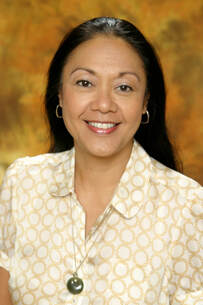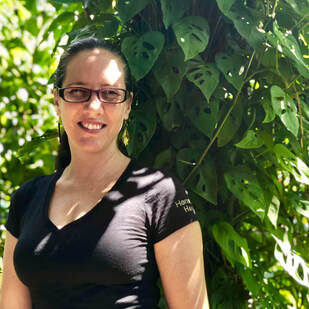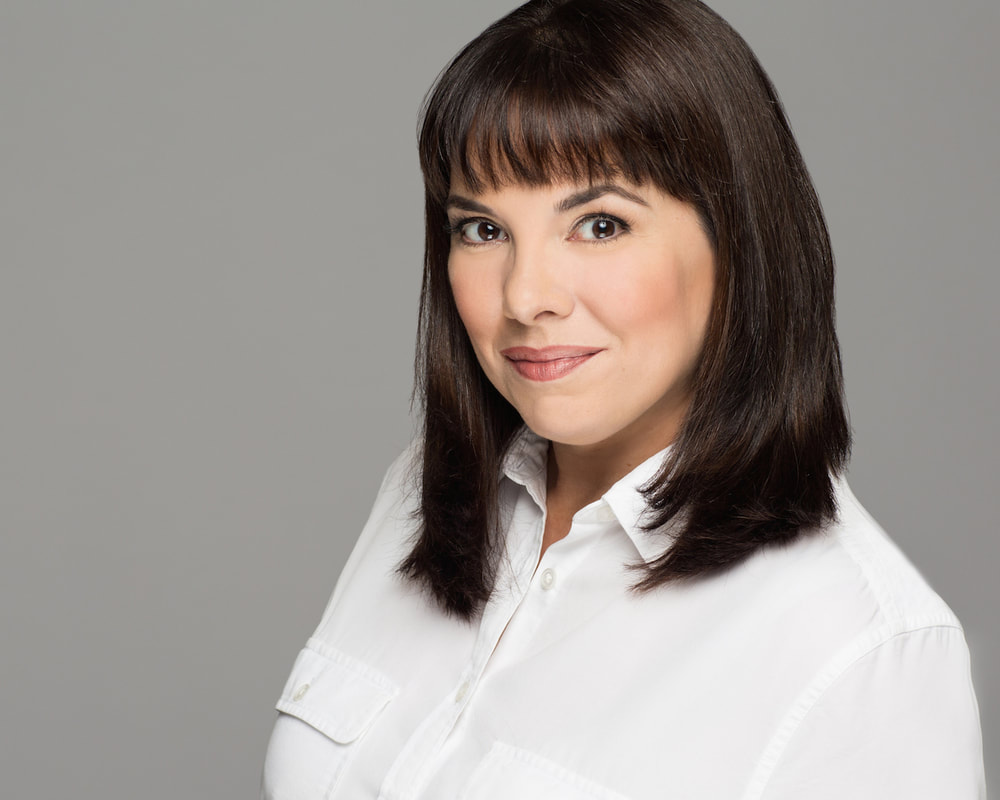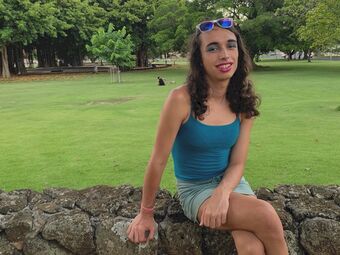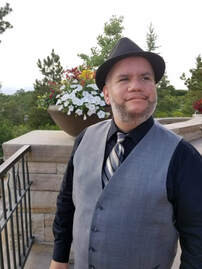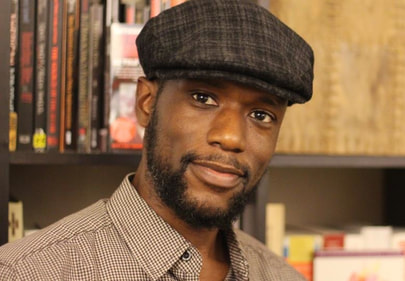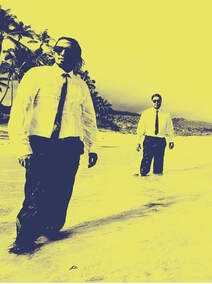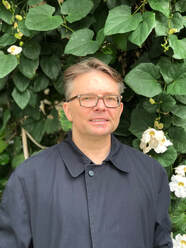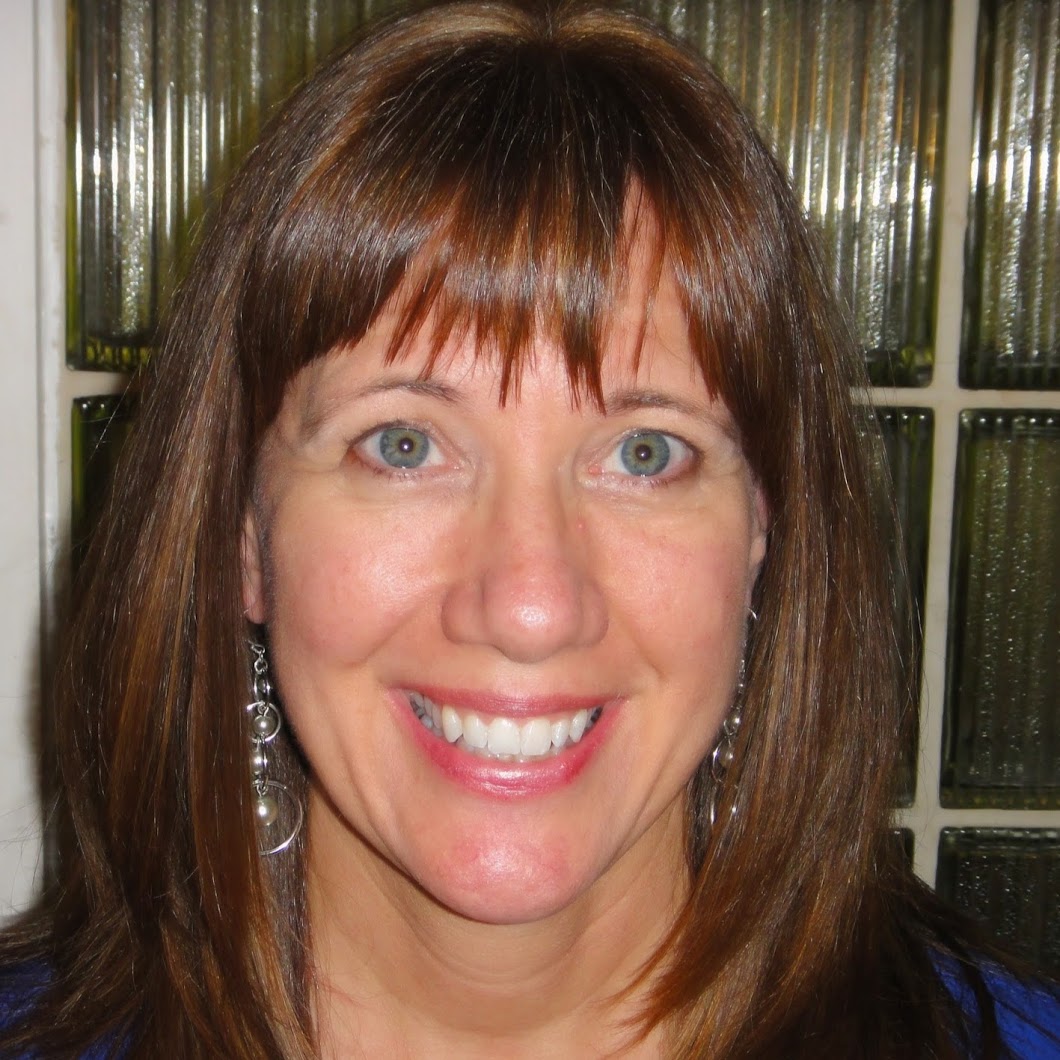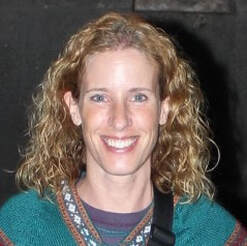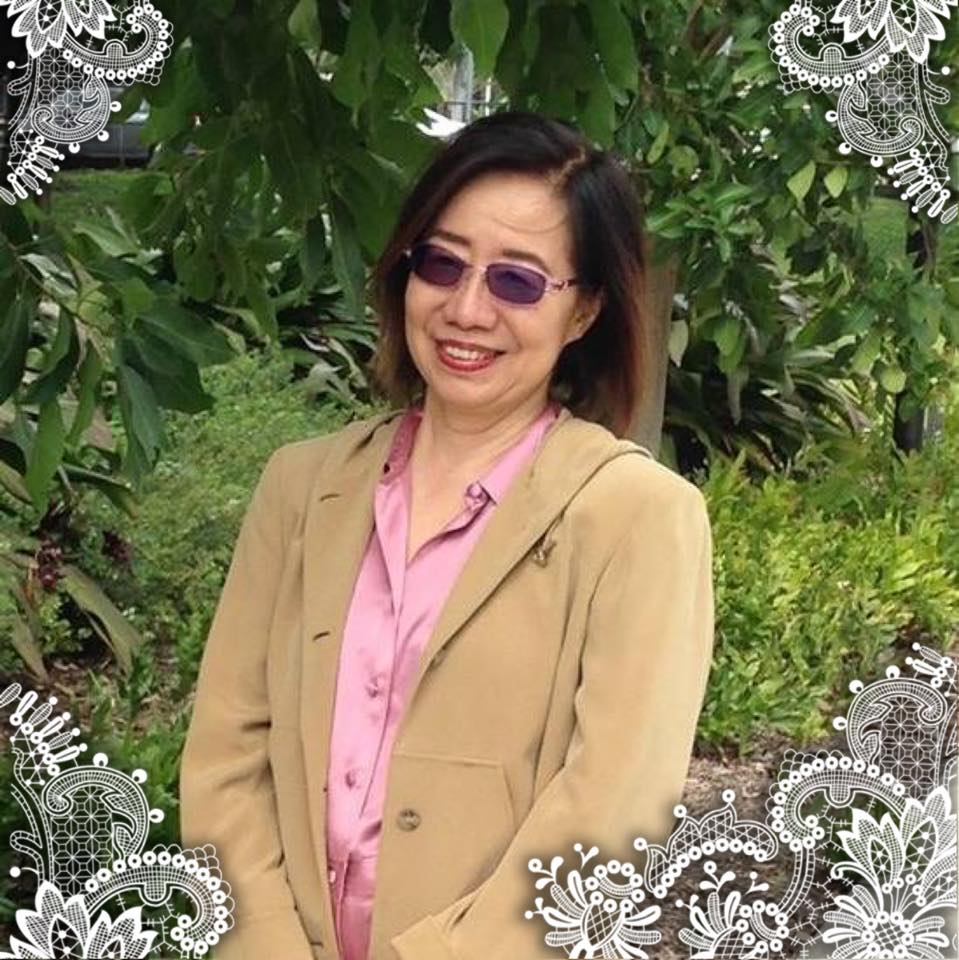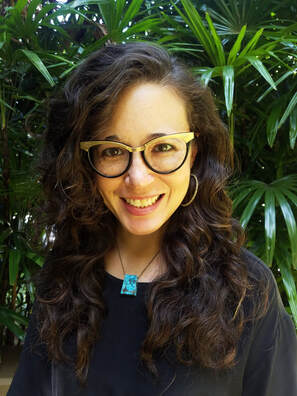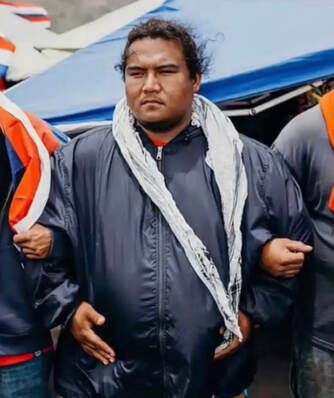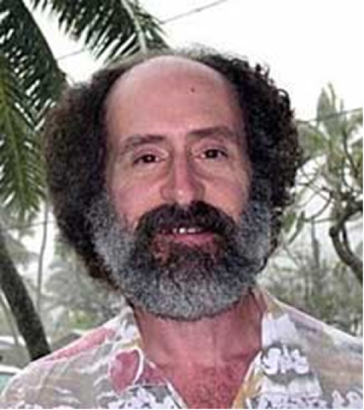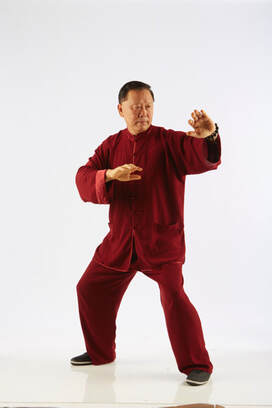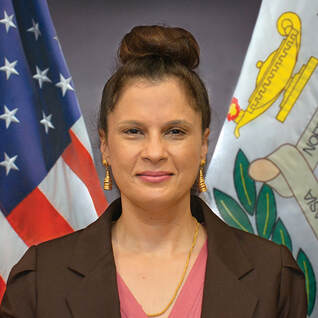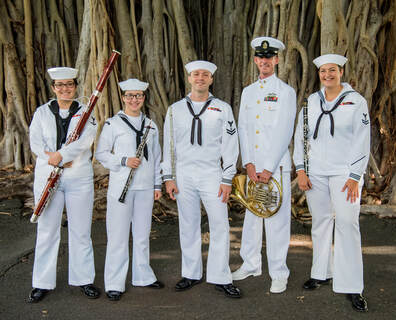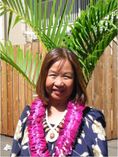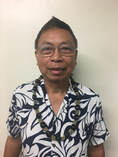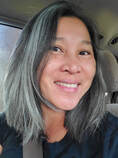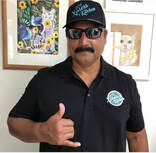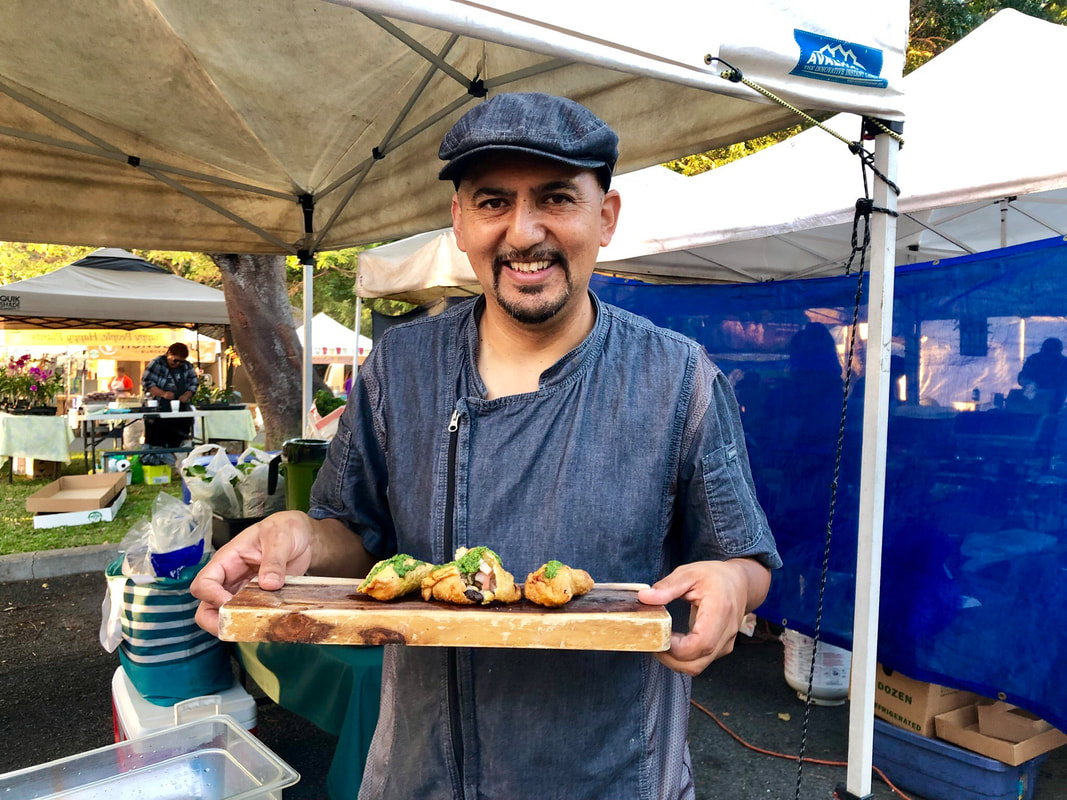Sept 9: Piko
Description:
The individual in old Hawaii viewed himself/herself as a link between his/her long line of forebears and his/her descendants, even those yet unborn. A piko closely connects an individual to his/her kinship and genealogy. It connects us to the past and to the future. Three areas of his/her body were thought most intimately concerned with this bond that transcends time. They are the posterior fontanel (the soft spot on the baby’s head), the genital region, and the umbilicus and umbilical cord with which s/he came into the world. This session explores the concept of the piko and the importance of building and maintaining connections across generations and through time.
Goals and Objectives:
Presenter: Maenette Benham
Dr. Maenette Kapeʻahiokalani Padeken Ah Nee – Benham began serving as UH West Oʻahu chancellor on January 1, 2017. A kānaka maoli scholar and teacher, Benham previously served as the inaugural dean of the Hawaiʻinuiākea School of Hawaiian Knowledge at UH Mānoa (2008-2016). She earned her doctoral degree from UH Mānoa in 1992 and joined the College of Education faculty at Michigan State University in 1993. Dr. Benham is committed to the praxis of social justice through engaged scholarship and the them of “university in community and community in university”. Her work on alternative cultural frames of educational leadership is nationally and internationally respected. She is author, co-author, editor of five books and numerous published articles, book chapters and technical reports.
Performer: Mālia Helelā - Kumu Hula
Kumu Mālia Ko’i’ulaokawaolehua Helelā strives to live a life of grace. Her hālau, which meets at Still & Moving Center, is Nā Hula Ola Aloha. Completing her 'ūniki under Kumu Hula Puluelo Park in 2002, she now teaches hula and oli to a wide range of students, from infants and toddlers to kūpuna. Mālia studied oli (traditional Hawaiian chant) under Kumu Hula Keola Lake. She began her formal training in lomilomi as a teenager. She was licensed by the State of Hawaii as a massage therapist in 1998 and as an esthetician in 2002. She is a member of Ka Pā o Lonopūhā, a school of traditional Hawaiian healing.
The individual in old Hawaii viewed himself/herself as a link between his/her long line of forebears and his/her descendants, even those yet unborn. A piko closely connects an individual to his/her kinship and genealogy. It connects us to the past and to the future. Three areas of his/her body were thought most intimately concerned with this bond that transcends time. They are the posterior fontanel (the soft spot on the baby’s head), the genital region, and the umbilicus and umbilical cord with which s/he came into the world. This session explores the concept of the piko and the importance of building and maintaining connections across generations and through time.
Goals and Objectives:
- Discover the Hawaiian concept of Piko through stories
- Explore Piko and its connection to kinship and genealogy
- Come to appreciate the importance of maintaining connections across generations
Presenter: Maenette Benham
Dr. Maenette Kapeʻahiokalani Padeken Ah Nee – Benham began serving as UH West Oʻahu chancellor on January 1, 2017. A kānaka maoli scholar and teacher, Benham previously served as the inaugural dean of the Hawaiʻinuiākea School of Hawaiian Knowledge at UH Mānoa (2008-2016). She earned her doctoral degree from UH Mānoa in 1992 and joined the College of Education faculty at Michigan State University in 1993. Dr. Benham is committed to the praxis of social justice through engaged scholarship and the them of “university in community and community in university”. Her work on alternative cultural frames of educational leadership is nationally and internationally respected. She is author, co-author, editor of five books and numerous published articles, book chapters and technical reports.
Performer: Mālia Helelā - Kumu Hula
Kumu Mālia Ko’i’ulaokawaolehua Helelā strives to live a life of grace. Her hālau, which meets at Still & Moving Center, is Nā Hula Ola Aloha. Completing her 'ūniki under Kumu Hula Puluelo Park in 2002, she now teaches hula and oli to a wide range of students, from infants and toddlers to kūpuna. Mālia studied oli (traditional Hawaiian chant) under Kumu Hula Keola Lake. She began her formal training in lomilomi as a teenager. She was licensed by the State of Hawaii as a massage therapist in 1998 and as an esthetician in 2002. She is a member of Ka Pā o Lonopūhā, a school of traditional Hawaiian healing.
sept 16: Learning through storytelling
Description:
Storytelling for learning goes back thousands of generations. In our earliest days, cavemen drew stories to help teach new generations how to hunt and gather. When a community sought an answer to a major problem, a storyteller would narrate stories suggesting solutions so that members of the community could derive their own answers. Native American and indigenous cultures that did not have a written language used storytelling to pass down history, customs, rituals, and legends. Such traditions exist all over the world and suggest one thing: stories are essential to learning and development. This session explores traditions and various forms of storytelling and the powerful ways they connect us to our past and our community.
Goals and Objectives:
Presenter: Lee Cataluna
Lee Cataluna’s most recent work is “Home of the Brave” commissioned by La Jolla Playhouse and Honolulu Theatre for Youth. Her work was featured in Native Voices at the Autry’s 2019 festival of indigenous playwrights. She is a metro columnist and her book “Folks You Meet in Longs” was named by Honolulu Magazine as one of the 50 most essential books about Hawaii. Born and raised in Hawaii and of Native Hawaiian descent, Cataluna has an MFA in Creative Writing from UC Riverside.
Performer 1: Noa Helelā - Poet
Noa Helelā is a hapa writer of Hawaiian, Chinese, Japanese, Portuguese and various White descent. She has and continues to produce art of various media including spoken word poetry, playwriting, screenwriting, and music. Themes of her largely Hawaii-centered work often focus on feminism, decolonization, mental health, institutionalized racism, socio-economics, trans experiences, queer relationships, genocide, indigenous struggles, etc.
Performer 2: David Keali‘i MacKenzie
David Keali‘i MacKenzie is the author of the chapbook From Hunger to Prayer (Silver Needle Press, 2018). A queer poet of Kanaka Maoli, European, and Chinese descent. A past member of the Worcester Poetry Slam team, he has performed his poetry in such places as West Palm Beach, Florida; Decatur, Georgia; Madison, Wisconsin; and Madang, Papua New Guinea. A Poet-Facilitator with the Honolulu based non-profit Pacific Tongues, he received an MA in Pacific Islands Studies, and an MLISc from the University of Hawai‘i at Mānoa.
Storytelling for learning goes back thousands of generations. In our earliest days, cavemen drew stories to help teach new generations how to hunt and gather. When a community sought an answer to a major problem, a storyteller would narrate stories suggesting solutions so that members of the community could derive their own answers. Native American and indigenous cultures that did not have a written language used storytelling to pass down history, customs, rituals, and legends. Such traditions exist all over the world and suggest one thing: stories are essential to learning and development. This session explores traditions and various forms of storytelling and the powerful ways they connect us to our past and our community.
Goals and Objectives:
- Engage in the tradition of storytelling through different source of media: books, plays, and newspaper
- Explore storytelling as means of entertainment, education, cultural preservation or instilling moral values
- Apply the knowledge we can gain from stories to share and pass down our own stories
Presenter: Lee Cataluna
Lee Cataluna’s most recent work is “Home of the Brave” commissioned by La Jolla Playhouse and Honolulu Theatre for Youth. Her work was featured in Native Voices at the Autry’s 2019 festival of indigenous playwrights. She is a metro columnist and her book “Folks You Meet in Longs” was named by Honolulu Magazine as one of the 50 most essential books about Hawaii. Born and raised in Hawaii and of Native Hawaiian descent, Cataluna has an MFA in Creative Writing from UC Riverside.
Performer 1: Noa Helelā - Poet
Noa Helelā is a hapa writer of Hawaiian, Chinese, Japanese, Portuguese and various White descent. She has and continues to produce art of various media including spoken word poetry, playwriting, screenwriting, and music. Themes of her largely Hawaii-centered work often focus on feminism, decolonization, mental health, institutionalized racism, socio-economics, trans experiences, queer relationships, genocide, indigenous struggles, etc.
Performer 2: David Keali‘i MacKenzie
David Keali‘i MacKenzie is the author of the chapbook From Hunger to Prayer (Silver Needle Press, 2018). A queer poet of Kanaka Maoli, European, and Chinese descent. A past member of the Worcester Poetry Slam team, he has performed his poetry in such places as West Palm Beach, Florida; Decatur, Georgia; Madison, Wisconsin; and Madang, Papua New Guinea. A Poet-Facilitator with the Honolulu based non-profit Pacific Tongues, he received an MA in Pacific Islands Studies, and an MLISc from the University of Hawai‘i at Mānoa.
Left to right: Lee Cataluna, Noa Helelā, David Keali‘i MacKenzie.
sept 23: teaching & learning across generations & CULTURES
Description:
Every generation of students bring new challenges and, consequently, new insights to education. Different learning styles and experiences make it necessary to develop a repertoire of best teaching practices that speak to different generations. From Traditionalists to Millennials, educators today are finding it necessary to understand a wide range of cross-generational learning styles and the techniques that serve them best. This session will focus on education through lyrics as a tool to facilitate student engagement.
Goals and Objectives:
Presenter: Keith Cross
Dr. Keith Cross is a veteran Hip-Hop artist, singer-songwriter, educator and scholar. Dr. Cross has a Ph.D. from Stanford University Graduate School of Education, specializing in Race, Inequality and Language in Education, and he is currently Assistant Professor of Multilingual and Multicultural Education at the University of Hawaiʻi at Mānoa. As a scholar, he investigates the role of song in the cognition and learning of those who compose/perform song lyrics and those who engage with song lyrics as audience.
Performer 1: Navid Najafi - Rap
Navid Najafi aka Illnomadic is a founding member of local conscious rap collective the Super Groupers and a two-time Na Hoku Hanohano Award winner. He was born in Iran and raised in New York but found home when he moved to Hawaiʻi to attend the University of Hawaiʻi at Mānoa. He has been an active artist, organizer, and volunteer in the community ever since. He is one of the founders of and current administrator/artist for Soundshop, an interactive hip hop education program for high school students at the Honolulu Museum of Art.
Performer 2: Scott Ohtoro - Rap
Scott Ohtoro is a multi-instrumentalist and has over 15 years of experience producing music and DJ'ing. He started making beats under the guidance of world-renowned hip-hop artists DJ Cheapshot, Exile and Aloe Blacc. Ohtoro is a multi Na Hoku Hanohano award nominee and a former high school math teacher in Los Angeles and Oahu. He also helped create Soundshop, a hip hop education workshop program at the Honolulu Museum of Art.
Every generation of students bring new challenges and, consequently, new insights to education. Different learning styles and experiences make it necessary to develop a repertoire of best teaching practices that speak to different generations. From Traditionalists to Millennials, educators today are finding it necessary to understand a wide range of cross-generational learning styles and the techniques that serve them best. This session will focus on education through lyrics as a tool to facilitate student engagement.
Goals and Objectives:
- Learn how methods of education vary across cultures and change over time
- Understand the values and needs of teachers and students in multilingual/multicultural society
- Explore how to empower student learning and engagement through different educational styles
Presenter: Keith Cross
Dr. Keith Cross is a veteran Hip-Hop artist, singer-songwriter, educator and scholar. Dr. Cross has a Ph.D. from Stanford University Graduate School of Education, specializing in Race, Inequality and Language in Education, and he is currently Assistant Professor of Multilingual and Multicultural Education at the University of Hawaiʻi at Mānoa. As a scholar, he investigates the role of song in the cognition and learning of those who compose/perform song lyrics and those who engage with song lyrics as audience.
Performer 1: Navid Najafi - Rap
Navid Najafi aka Illnomadic is a founding member of local conscious rap collective the Super Groupers and a two-time Na Hoku Hanohano Award winner. He was born in Iran and raised in New York but found home when he moved to Hawaiʻi to attend the University of Hawaiʻi at Mānoa. He has been an active artist, organizer, and volunteer in the community ever since. He is one of the founders of and current administrator/artist for Soundshop, an interactive hip hop education program for high school students at the Honolulu Museum of Art.
Performer 2: Scott Ohtoro - Rap
Scott Ohtoro is a multi-instrumentalist and has over 15 years of experience producing music and DJ'ing. He started making beats under the guidance of world-renowned hip-hop artists DJ Cheapshot, Exile and Aloe Blacc. Ohtoro is a multi Na Hoku Hanohano award nominee and a former high school math teacher in Los Angeles and Oahu. He also helped create Soundshop, a hip hop education workshop program at the Honolulu Museum of Art.
Left: Keith Cross; Right: Navid Najafi and Scott Ohtoro.
sept 30: LOOKING GOOD! CULTURES AND FASHION
Description:
The clothes we wear say a lot about who we are and where we come from. Fashion is one form of cultural expression. Each culture has its own hues and specialties. One can become a part of another’s culture, tradition, and heritage, by integrating one or many fashion elements. In this way, we can bring about a union of many cultures, with fashion as the much-needed strong foundation. Fashion is one sector that can bridge the gap between several cultures. Cultural expressions facilitate the transfer of knowledge from past to future generations. This session explores different clothing through the ages in the Asia Pacific region.
Goals and Objectives:
Presenter 1: Andrew Reilly
Andy Reilly, PhD, is Professor in the Fashion Design and Merchandising Program at the University of Hawai‘i, Mānoa, where he teaches courses related to behavioral aspects of fashion and dress. His research examines the intersections of gender and sexuality, and post- postmodernism in dress. His books include The Men’s Fashion Reader (2008), Meanings of Dress 3 rd and 4 th editions (2012), Crossing Gender Boundaries (2019), Introducing Fashion Theory (2020), and Fashion, Dress, and Post-postmodernism (2020, forthcoming). He is a founding Editor of Critical Studies in Men’s Fashion (Intellect).
Presenter 2: Loriena Yancura
Loriena Yancura is a Professor with the Human Development and Family Science Program. She holds a Ph.D. in lifespan Human Development from the University of California at Davis. Her research examines intergenerational relationships among grandparents raising grandchildren. She is currently the director of the GrandCARES program for grandfamilies.
Presenter 3: Christine Beaule
Christine Beaule is an Associate Professor of Latin American and Iberian Studies at UH Mānoa, and the Director of the General Education Office. Her research focuses on a comparative approach to the archaeological impact of colonialism on indigenous material culture, including ceremonial drinking vessels and clothing. Her recent work on clothing uses Aymara and Quechua men and women’s everyday dress and festival costumes to trace sociopolitical changes in Andean (Peru and Bolivia) indigenous identity from the Inka through today.
Performer: Lin Shu-Hwa - Fashion Display
Dr. Shu-Hwa Lin is a Professor and Costume Curator at the Department of Family & Consumer Sciences in the Fashion Design & Merchandising Program at the University of Hawai ̒i at Mānoa. She conducted experiments with vegetable dyes on natural fibers and conducted the effect vegetable dyes’ color on influences of pH scale. Specially, she is interested on coffee dyes and attempted to preserve the coffee aroma as well. Also, Dr. Lin likes colors and aroma as health therapy aspects in her research. For thirteen years Dr. Lin worked in apparel companies as a Technical designer in charge of patterns and production management. She is especially interested in Chinese textiles in the Ming and Qing dynasty, specially the uses of color as ranks.
The clothes we wear say a lot about who we are and where we come from. Fashion is one form of cultural expression. Each culture has its own hues and specialties. One can become a part of another’s culture, tradition, and heritage, by integrating one or many fashion elements. In this way, we can bring about a union of many cultures, with fashion as the much-needed strong foundation. Fashion is one sector that can bridge the gap between several cultures. Cultural expressions facilitate the transfer of knowledge from past to future generations. This session explores different clothing through the ages in the Asia Pacific region.
Goals and Objectives:
- Learn how fashion changed over time through trends and comebacks
- Examine how fashion can bridge gaps in understanding cultures and generations
- Explore the different fashion outfits of the Asia Pacific region
Presenter 1: Andrew Reilly
Andy Reilly, PhD, is Professor in the Fashion Design and Merchandising Program at the University of Hawai‘i, Mānoa, where he teaches courses related to behavioral aspects of fashion and dress. His research examines the intersections of gender and sexuality, and post- postmodernism in dress. His books include The Men’s Fashion Reader (2008), Meanings of Dress 3 rd and 4 th editions (2012), Crossing Gender Boundaries (2019), Introducing Fashion Theory (2020), and Fashion, Dress, and Post-postmodernism (2020, forthcoming). He is a founding Editor of Critical Studies in Men’s Fashion (Intellect).
Presenter 2: Loriena Yancura
Loriena Yancura is a Professor with the Human Development and Family Science Program. She holds a Ph.D. in lifespan Human Development from the University of California at Davis. Her research examines intergenerational relationships among grandparents raising grandchildren. She is currently the director of the GrandCARES program for grandfamilies.
Presenter 3: Christine Beaule
Christine Beaule is an Associate Professor of Latin American and Iberian Studies at UH Mānoa, and the Director of the General Education Office. Her research focuses on a comparative approach to the archaeological impact of colonialism on indigenous material culture, including ceremonial drinking vessels and clothing. Her recent work on clothing uses Aymara and Quechua men and women’s everyday dress and festival costumes to trace sociopolitical changes in Andean (Peru and Bolivia) indigenous identity from the Inka through today.
Performer: Lin Shu-Hwa - Fashion Display
Dr. Shu-Hwa Lin is a Professor and Costume Curator at the Department of Family & Consumer Sciences in the Fashion Design & Merchandising Program at the University of Hawai ̒i at Mānoa. She conducted experiments with vegetable dyes on natural fibers and conducted the effect vegetable dyes’ color on influences of pH scale. Specially, she is interested on coffee dyes and attempted to preserve the coffee aroma as well. Also, Dr. Lin likes colors and aroma as health therapy aspects in her research. For thirteen years Dr. Lin worked in apparel companies as a Technical designer in charge of patterns and production management. She is especially interested in Chinese textiles in the Ming and Qing dynasty, specially the uses of color as ranks.
Left to right: Andrew Reilly, Loriena Yancura, Christine Beaule, Lin Shu-Hwa.
oct 7: SECURING THE ENVIRONMENT FOR FUTURE GENERATIONS
Description:
We do not inherit the earth from our ancestors; we borrow it from our children. Climate change, population growth, increasing land use and competition for resources all impact heavily on nature and wildlife. Our planetary life support systems are compromised, and the anticipated impacts of climate change pose a clear and present threat to all of our futures. With climate literacy, we can improve the quality of life for both present and future generations – locally and globally – through planning, public policy, and social collaboration. In this session, we will look at sustainability across the curriculum looking at practices to help secure our environment.
Goals and Objectives:
- Understanding how we are changing our environment through human developments
- Explore issues like sustainability, climate change, and resilience
- Gain knowledge and skills to become active agents to promote a more sustainable world
Presenter: Victoria Keener
Dr. Victoria Keener is a Research Fellow at the East-West Center, the Lead Principal Investigator of the NOAA Pacific Regional Integrated Sciences & Assessments (Pacific RISA) program, and is the Lead Author of the Hawaii and US-Affiliated Pacific Islands chapter of the 4th US National Climate Assessment. Dr. Keener also serves as one of five members of the City and County of Honolulu Climate Commission, which provides science-based recommendations to the Mayor and City Council. She earned a PhD in Agricultural & Biological Engineering from the University of Florida, specializing in hydro-climatological research. Dr. Keener leads an interdisciplinary team of social and physical scientists that aims to reduce Pacific Islands’ vulnerability to climate change by working with decision makers to produce and translate research into actionable knowledge for a variety of stakeholders at the local, state, and regional level.
Performer: Punahele - Rapper
Punahele is a Kanaka Maoli Hip Hop artist-educator born and raised in the slums of Mākaha on Oʻahu’s West Side. He teaches youth from disadvantaged backgrounds the power of storytelling through Hip Hop. He’s the first ever Bacardi Iron MC champion and the 2019 Nā Hōkū Hanohano Hip Hop Album of The Year Award winner for his debut album From Beneath Mt. Kaʻala which chronicles the realities that many Hawaiians face living along the Waianae coast. Music has taken him around the world sharing stories of resistance and resurgence that add to the collective struggle of all oppressed people.
Left: Victoria Keener; Right: Punahele.
oct 21: TRADITIONAL PRACTICE IN MODERN MEDICINE
Description:
Traditional medicine is the knowledge, skills and practices based on the theories, beliefs and experiences indigenous to different cultures, used in the maintenance of health and in the prevention, diagnosis, improvement or treatment of physical and mental illness. Traditional and modern systems of medicine were developed by different philosophies in different cultural backgrounds. They look at health, diseases and causes of diseases in different ways. These differences bring different approaches to health and diseases. However, both systems deal with the same subject – human being. The old and modern arts of healing should exist together. This session will focus on how neither approach should be dismissed but should be recognized for the unique value that it can bring.
Goals and Objectives:
Presenter: Alan Katz
Alan Katz, MD, MPH, is a Professor of Public Health and Associate Director, Office of Public Health Studies, University of Hawai‘i at Mānoa. He earned his MD at the University of California, Irvine and his MPH at the University of Hawaii. Prior to his faculty appointment at UH, Dr. Katz served as the medical director of a federally qualified health center on Oahu and Director of the Hawai‘i State Department of Health’s STD/AIDS Prevention Program. He was appointed by Governor Abercrombie to the Hawai‘i Board of Health 2012-2016, and has served as a consultant to the US Centers for Disease Control and Prevention on multidrug-resistant Neisseria gonorrhoeae.
Performer: Dong Zeng Chen - Grand Master
Grand Master Dong Zeng Chen is the head of the Dong Family International Taichi Chuan Association and the head instructor of Dong Taijiquan Dao Academy. He is the third generation in his internationally famous family and with more than 50 years of sharing the art of Taichi all over the world. He is one of very few masters who inherited and has mastered the essential of Taijiquan.
Traditional medicine is the knowledge, skills and practices based on the theories, beliefs and experiences indigenous to different cultures, used in the maintenance of health and in the prevention, diagnosis, improvement or treatment of physical and mental illness. Traditional and modern systems of medicine were developed by different philosophies in different cultural backgrounds. They look at health, diseases and causes of diseases in different ways. These differences bring different approaches to health and diseases. However, both systems deal with the same subject – human being. The old and modern arts of healing should exist together. This session will focus on how neither approach should be dismissed but should be recognized for the unique value that it can bring.
Goals and Objectives:
- Learn about a variety of approaches to health and medicine across tradition and cultures
- Explore how traditional medicinal practices have been utilized or adapted today
- Discuss ways in which valuable cultural knowledge can contribute to health and medicine in the future
Presenter: Alan Katz
Alan Katz, MD, MPH, is a Professor of Public Health and Associate Director, Office of Public Health Studies, University of Hawai‘i at Mānoa. He earned his MD at the University of California, Irvine and his MPH at the University of Hawaii. Prior to his faculty appointment at UH, Dr. Katz served as the medical director of a federally qualified health center on Oahu and Director of the Hawai‘i State Department of Health’s STD/AIDS Prevention Program. He was appointed by Governor Abercrombie to the Hawai‘i Board of Health 2012-2016, and has served as a consultant to the US Centers for Disease Control and Prevention on multidrug-resistant Neisseria gonorrhoeae.
Performer: Dong Zeng Chen - Grand Master
Grand Master Dong Zeng Chen is the head of the Dong Family International Taichi Chuan Association and the head instructor of Dong Taijiquan Dao Academy. He is the third generation in his internationally famous family and with more than 50 years of sharing the art of Taichi all over the world. He is one of very few masters who inherited and has mastered the essential of Taijiquan.
Left: Alan Katz; Right: Dong Zeng Chen.
oct 28: WOMEN IN SECURITY
Description:
How do we better secure our country? The security of our nation is a real problem worth working on and it literally impacts everyone. Patriarchy, inequalities, militarised masculinities and discriminatory power structures inhibit effective conflict prevention, inclusive peace, women’s rights and participation. Ensuring a gender perspective and women’s participation, protection and rights are critical, including in prevention and disarmament, protection in displacement settings, peacekeeping, policy-making and reconstruction. This session will focus on Women, Peace and Security, which is a global initiative to promote gender inclusive strategies in response to evolving national and transnational threats.
Goals and Objectives:
- Explore the shift in the traditional understanding of state security in view of its relationship with community security
- Examine the role of women in: conflict prevention and resolution, peace negotiations, peacekeeping and peacebuilding
- Learn about emergent peace and security agenda in countries threatened and affected by war, violence, and insecurity, such as the National Action Plan
Presenter: Saira Yamin
Saira Yamin is a Professor at the Daniel K. Inouye Asia-Pacific Center for Security Studies (DKI APCSS) in Honolulu, Hawaiʻi. She specializes in conflict resolution, gender, terrorism and South Asian security. Her writings have been published by the United States Institute of Peace, Oxford University Press, The Christian Science Monitor, The New York Times, The Nation, Politico, Foreign Policy in Focus, The Friday Times (Lahore), The Daily Times (Lahore), The News International (Islamabad), and the Journal for the Institute of Peace and Conflict Studies (New Delhi), among others. She received her B.A. in Political Science and English Literature from the University of the Punjab, Pakistan, and earned both her M.Sc. and Ph.D. in Conflict Analysis and Resolution from George Mason University, Virginia.
Performer: U.S. Pacific Fleet Band
Under the leadership of Lieutenant Kelly L. Cartwright, Bandmaster, U.S. Pacific Fleet, the “Tradewinds” Woodwind Quintet is one of the most highly requested ensembles by local music educators and military event hosts alike. The group’s members have performed throughout Hawaiʻi, on peacekeeping missions such as the 2019 Pacific Partnership deployment to the Republic of the Marshall Islands, and for U.S. Embassy support in the Federated States of Micronesia. The group is made up of Unit Leader Musician Second Class Kyle Beltram on flute, Chief Musician (Surface Warfare) Christopher Bourgeois on horn, Musician Second Class Andrea Pharis on clarinet, Musician Third Class Kaitlin Miks on bassoon, and Musician Third Class Casey Knowlton on oboe.
Left: Saira Yamin; Right: U.S. Pacific Fleet Band.
nov 4: OUR KITCHEN STORIES
Description:
The kitchen is often called the heart and soul of the home. It’s where meals and memories are made, where families and friends gather, where traditions are born, and where stories are told and retold. Every family has a recipe or two that they cherish. Family recipes are certain foods that remind us of warm feelings and happy memories with the ones we love. Some family recipes have been passed down for so many generations that we aren’t even sure where they originated. This session celebrates the power of food in bringing people together.
Goals and Objectives:
Presenter: Tin Myaing Thein
Dr. Tin Myaing Thein has over 30 years of experience in community and economic development, administering and implementing programs for both national and international organizations. Born in Myanmar (Burma), Dr. Thein pursued global issues concerning the economic predicament of poverty alleviation. As a community organizer and researcher, she has designed and implemented community programs and conducted numerous projects dealing with rural education, women’s issues, and poverty. In the last several years, Dr. Myaing has served as the Executive Director of the Pacific Gateway Center. The values of this non-profit organization start with food and end among other values. All programs are centered around food, from farming to food processing, to food outlets.
Performers:
The kitchen is often called the heart and soul of the home. It’s where meals and memories are made, where families and friends gather, where traditions are born, and where stories are told and retold. Every family has a recipe or two that they cherish. Family recipes are certain foods that remind us of warm feelings and happy memories with the ones we love. Some family recipes have been passed down for so many generations that we aren’t even sure where they originated. This session celebrates the power of food in bringing people together.
Goals and Objectives:
- Learn how family recipes tell a story
- Explore how they're often connected to people, places, and special memories -- they have a who, a where, and a why
- Discover how you're making family history when you prepare and eat these foods with your family and friends
Presenter: Tin Myaing Thein
Dr. Tin Myaing Thein has over 30 years of experience in community and economic development, administering and implementing programs for both national and international organizations. Born in Myanmar (Burma), Dr. Thein pursued global issues concerning the economic predicament of poverty alleviation. As a community organizer and researcher, she has designed and implemented community programs and conducted numerous projects dealing with rural education, women’s issues, and poverty. In the last several years, Dr. Myaing has served as the Executive Director of the Pacific Gateway Center. The values of this non-profit organization start with food and end among other values. All programs are centered around food, from farming to food processing, to food outlets.
Performers:
- Than Htut Aye (Pacific Gateway Center),
- Kim Loan Tiara (Love & Limes),
- Gary Talbert (808 Express Kitchen), and
- Nelo Gonzáles (Papi's Empanadas)
Left to right: Tin Myaing Thein, Than Htut Aye, Kim Loan Tiara, Gary Talbert, Nelo González.
